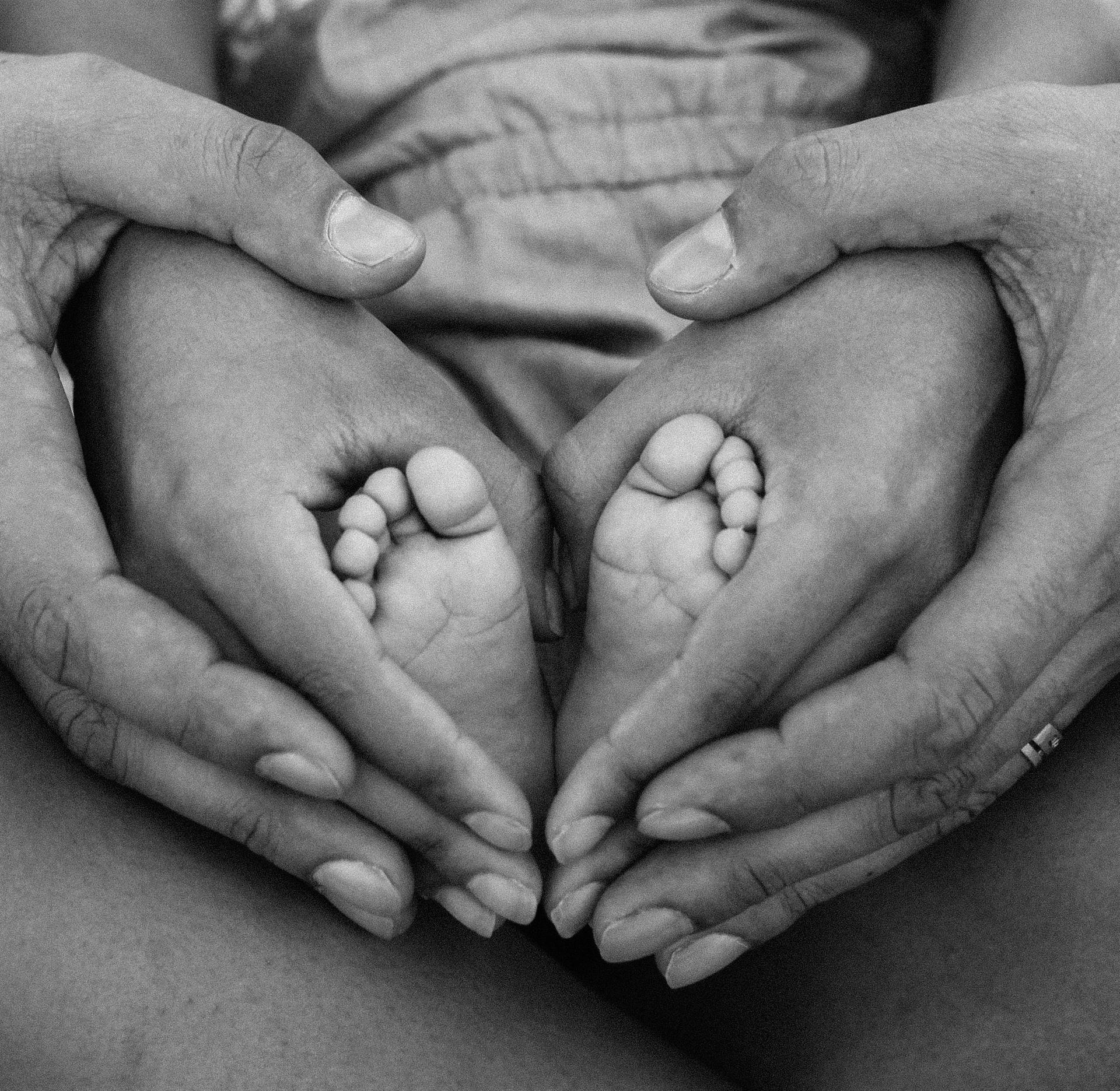How Does My Baby Get a Birth Certificate and Social Security Number?
Once your baby is born and you have chosen a name, the midwife will submit the information to Indiana Vital Records for your baby to receive a state-issued birth certificate and Social Security number. You will be provided with the necessary information along the way.
What if I Need to Reach the Midwife Quickly?
Clients are provided with the midwife’s personal cell phone number and backup contact numbers when care begins. Please refer to the Communication Policy. You are always encouraged to contact the midwife immediately for urgent concerns or labor. For routine concerns, please call during business hours or send an email.
Is Home Birth Safe?
A frequent question when people hear the words “home” and “birth” together is, “Is it safe?” Statistics indicate that it is. A study published in the BMJ in 2005 concluded that planned home births for low-risk women in North America with certified professional midwives had lower rates of medical intervention and similar mortality rates compared to low-risk hospital births. For more details on this study, visit mana.org. Always consider whether studies included unplanned home births, high-risk births, or other factors that might affect outcomes.
Do You Attend Water Births? Is It Safe?
Yes, you are welcome to labor or birth in water if you choose. To reduce the risk of bacterial growth, we avoid using pools kept heated for days before labor begins. If you use an inflatable birthing pool, we recommend using a new disposable liner and new drinking water-safe hose for each birth. If you plan to use your own bathtub or Jacuzzi, you will receive cleaning instructions during your home visit.
How Do I Plan for a Home Birth?
Throughout your pregnancy, we will address any concerns and work together to keep you healthy. As your due date approaches, we will prepare an emergency care plan, and you will set aside items such as towels and receiving blankets. At your home visit, you will receive a birth kit with supplies to help contain any mess and clean up after the birth. My equipment includes oxygen and medication to manage postpartum hemorrhage.
When Did Your Practice Open?
I began accepting clients in the fall of 2009 under the supervision of my preceptor and earned my certification in 2010. I have attended over 850 births.
When Does Prenatal Care Begin?
Many women begin prenatal care at 10-12 weeks, but it is possible to start later in pregnancy, depending on availability.
What Does a Typical Prenatal Visit Involve?
Each prenatal visit is scheduled for one hour, allowing plenty of time to discuss concerns and check your blood pressure, urine, and your baby’s heartbeat. As the pregnancy progresses, we will measure your fundal height and check your baby’s position using Leopold’s Maneuvers.
Do You Recommend Hiring a Doula and Attending Childbirth Classes?
Yes, I recommend hiring a doula, especially for first-time mothers or those having their first natural birth. A doula with home birth experience provides continuous emotional support. For childbirth education, I suggest attending a class taught by an independent educator.
Do You Attend VBAC (Vaginal Birth After Cesarean), Breech, Twins, Etc.?
Each case is considered individually, so please contact me to discuss your specific situation.
Will Insurance Cover My Birth?
Insurance coverage for midwifery services is unlikely, but you can request reimbursement by submitting a receipt to your insurance after the baby is born. Medicaid and Hoosier Healthwise do not cover my services but may cover visits with a collaborating physician or chiropractor.
Do You Offer Any Discounts?
Yes, payment plans and discounts are available for clients paying out of pocket. Barter arrangements for goods or services that are useful to the midwife may also be an option. Please contact me to discuss further.
What Is Included in the Midwifery Fee?
The fee covers routine prenatal, labor, birth, and postpartum services provided by the midwife and assistant. Care by a hospital or physician, if necessary, is separate and would be billed directly to you by the hospital or physician.
If I Tear, Can You Suture?
Yes, we can numb and suture first or second-degree tears at home.
How Long Do You Stay After My Baby Is Born?
The midwife and assistant typically stay for 2-3 hours after the birth, ensuring that both the baby and mother are stable before departing.
What if There Is an Emergency?
The midwife and her assistant are trained in CPR and neonatal resuscitation. We carry equipment to manage resuscitation and postpartum hemorrhage and prepare an emergency care plan before labor begins.
What Is Your Transport & Cesarean Rate?
Around 5% of mothers transport to the hospital in labor, with an overall Cesarean rate of about 3%. Most transports are due to long labors and the desire for pain relief. Transport is usually by private car, and in rare cases, by ambulance.
What Happens if I “Risk Out” of Home Birth?
If your pregnancy becomes high-risk, you may leave midwifery care and pay a pro-rated fee, or you can retain the midwife as your doula and return to her care postpartum. Details regarding payment can be found in the Financial Agreement.
Do You Keep Statistics?
Yes, I publish annual practice statistics on my Facebook page and report them to the Indiana State Department of Health.
What Do Postpartum Visits Involve?
The initial postpartum visit occurs 24-48 hours after birth and includes monitoring the mother’s recovery and baby’s health. The Indiana Newborn Screening and CCHD screening are performed unless you opt out. Additional visits are scheduled to assess mom and baby’s vitals and baby’s weight gain at 1 week, 2 or 3 weeks, and 6 weeks postpartum, or as needed.

